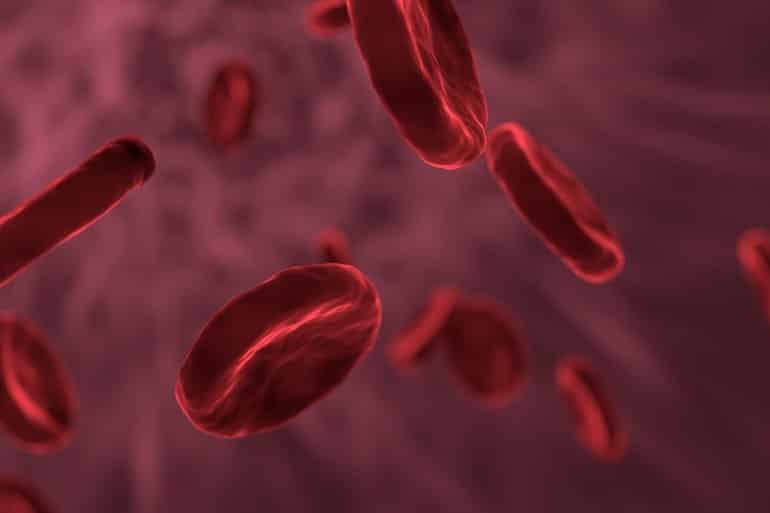Summary: Researchers have identified two blood proteins that influence health and longevity. Developing drugs to target these proteins could help slow the aging process.
Source: University of Edinburgh
Two blood proteins have been shown by scientists to influence how long and healthy a life we live, research suggests.
Developing drugs that target these proteins could be one way of slowing the aging process, according to the largest genetic study of aging.
As we age, our bodies begin to decline after we reach adulthood, which results in age-related diseases and death. This latest research investigates which proteins could influence the aging process.
Many complex and related factors determine the rate at which we age and die, and these include genetics, lifestyle, environment and chance. The study sheds light on the part proteins play in this process.
Some people naturally have higher or lower levels of certain proteins because of the DNA they inherit from their parents. These protein levels can, in turn, affect a person’s health.
University of Edinburgh researchers combined the results of six large genetic studies into human aging – each containing genetic information on hundreds of thousands of people,
Among 857 proteins studied, researchers identified two that had significant negative effects across various aging measures.
People who inherited DNA that causes raised levels of these proteins were frailer, had poorer self-rated health and were less likely to live an exceptionally long life than those who did not.
The first protein, called apolipoprotein(a) (LPA), is made in the liver and thought to play a role in clotting. High levels of LPA can increase the risk of atherosclerosis – a condition in which arteries become clogged with fatty substances. Heart disease and stroke is a possible outcome.
The second protein, vascular cell adhesion molecule 1 (VCAM1), is primarily found on the surfaces of endothelial cells – a single-cell layer that lines blood vessels. The protein controls vessels’ expansion and retraction – and function in blood clotting and the immune response.

Levels of VCAM1 increase when the body sends signals to indicate it has detected an infection, VCAM1 then allows immune cells to cross the endothelial layer, as seen for people who have naturally low levels of these proteins.
The researchers say that drugs used to treat diseases by reducing levels of LPA and VCAM1 could have the added benefit of improving quality and length of life.
One such example is a clinical trial that is testing a drug to lower LPA as a way of reducing the risk of heart disease.
There are currently no clinical trials involving VCAM1, but studies in mice have shown how antibodies lowering this protein’s level improved cognition during old age.
The findings have been published in the journal Nature Aging.
Dr Paul Timmers, lead researcher at the MRC Human Genetics Unit at University of Edinburgh, said: “The identification of these two key proteins could help extend the healthy years of life. Drugs that lower these protein levels in our blood could allow the average person to live as healthy and as long as individuals who have won the genetic lottery and are born with genetically low LPA and VCAM1 levels.”
Professor Jim Wilson, Chair of Human Genetics at the University of Edinburgh’s Usher Institute, said: “This study showcases the power of modern genetics to identify two potential targets for future drugs to extend lifespan.”
About this genetics and aging research news
Author: Shane Canning
Source: University of Edinburgh
Contact: Shane Canning – University of Edinburgh
Image: The image is in the public domain
Original Research: Closed access.
“Mendelian randomization of genetically independent aging phenotypes identifies LPA and VCAM1 as biological targets for human aging” by Paul Timmers et al. Nature Aging
Abstract
Mendelian randomization of genetically independent aging phenotypes identifies LPA and VCAM1 as biological targets for human aging
Length and quality of life are important to us all, yet identification of promising drug targets for human aging using genetics has had limited success.
In the present study, we combine six European-ancestry genome-wide association studies of human aging traits—healthspan, father and mother lifespan, exceptional longevity, frailty index and self-rated health—in a principal component framework that maximizes their shared genetic architecture. The first principal component (aging-GIP1) captures both length of life and indices of mental and physical wellbeing.
We identify 27 genomic regions associated with aging-GIP1, and provide additional, independent evidence for an effect on human aging for loci near HTT and MAML3 using a study of Finnish and Japanese survival. Using proteome-wide, two-sample, Mendelian randomization and colocalization, we provide robust evidence for a detrimental effect of blood levels of apolipoprotein(a) and vascular cell adhesion molecule 1 on aging-GIP1.
Together, our results demonstrate that combining multiple aging traits using genetic principal components enhances the power to detect biological targets for human aging.






